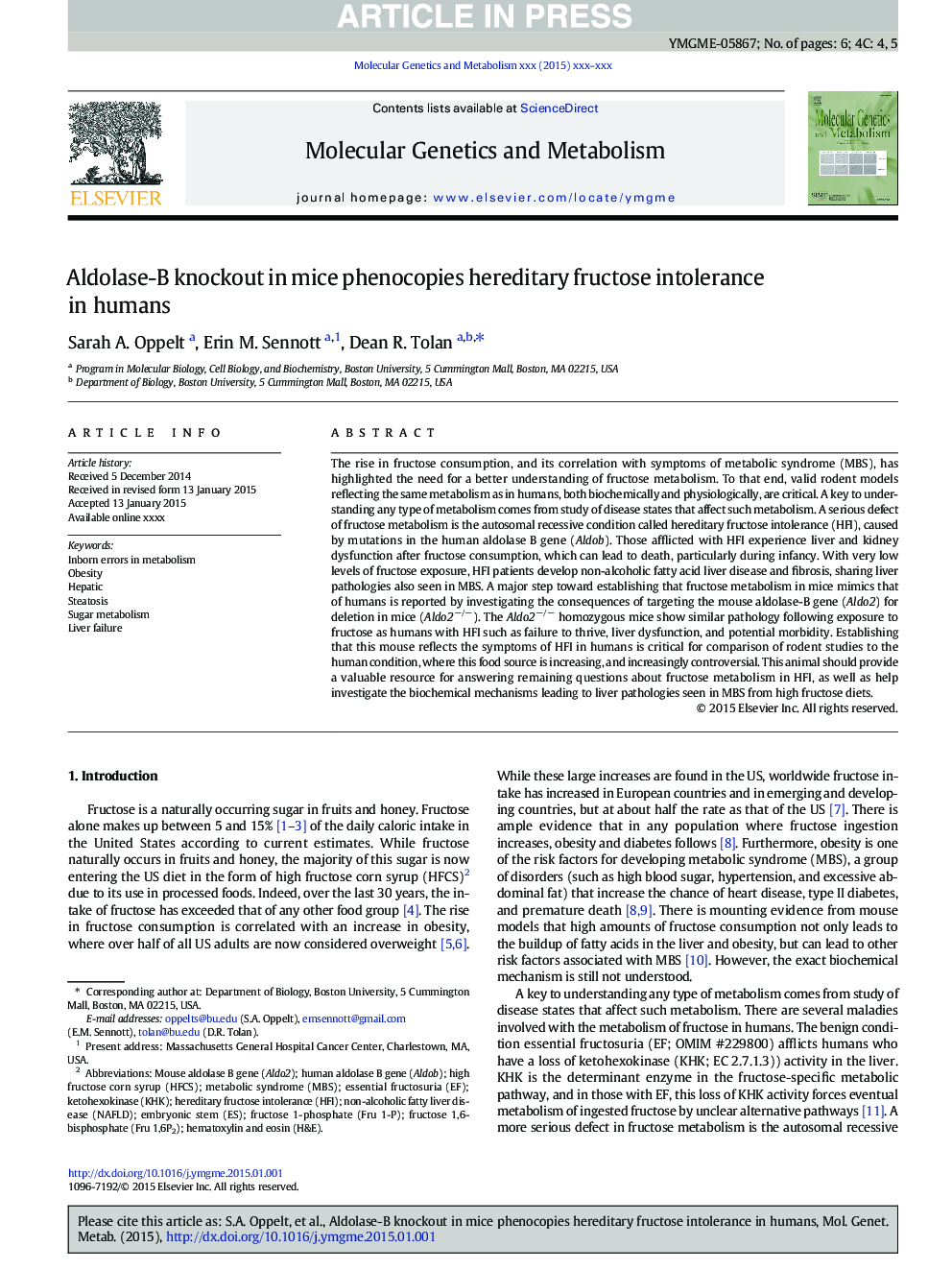| Article ID | Journal | Published Year | Pages | File Type |
|---|---|---|---|---|
| 10833152 | Molecular Genetics and Metabolism | 2015 | 6 Pages |
Abstract
The rise in fructose consumption, and its correlation with symptoms of metabolic syndrome (MBS), has highlighted the need for a better understanding of fructose metabolism. To that end, valid rodent models reflecting the same metabolism as in humans, both biochemically and physiologically, are critical. A key to understanding any type of metabolism comes from study of disease states that affect such metabolism. A serious defect of fructose metabolism is the autosomal recessive condition called hereditary fructose intolerance (HFI), caused by mutations in the human aldolase B gene (Aldob). Those afflicted with HFI experience liver and kidney dysfunction after fructose consumption, which can lead to death, particularly during infancy. With very low levels of fructose exposure, HFI patients develop non-alcoholic fatty acid liver disease and fibrosis, sharing liver pathologies also seen in MBS. A major step toward establishing that fructose metabolism in mice mimics that of humans is reported by investigating the consequences of targeting the mouse aldolase-B gene (Aldo2) for deletion in mice (Aldo2â/â). The Aldo2â/â homozygous mice show similar pathology following exposure to fructose as humans with HFI such as failure to thrive, liver dysfunction, and potential morbidity. Establishing that this mouse reflects the symptoms of HFI in humans is critical for comparison of rodent studies to the human condition, where this food source is increasing, and increasingly controversial. This animal should provide a valuable resource for answering remaining questions about fructose metabolism in HFI, as well as help investigate the biochemical mechanisms leading to liver pathologies seen in MBS from high fructose diets.
Related Topics
Life Sciences
Biochemistry, Genetics and Molecular Biology
Biochemistry
Authors
Sarah A. Oppelt, Erin M. Sennott, Dean R. Tolan,
